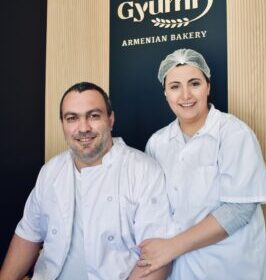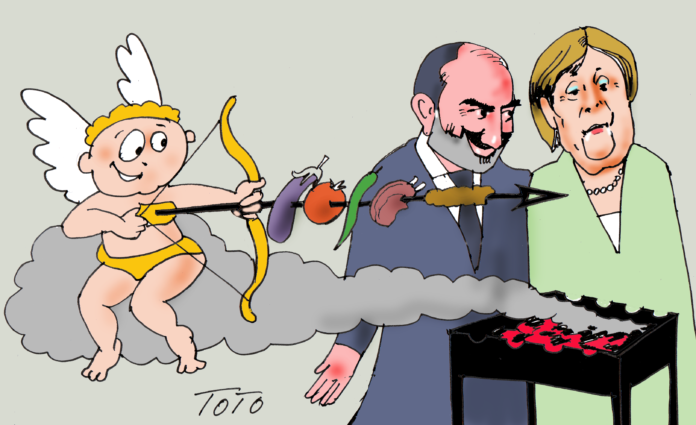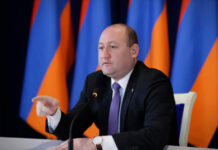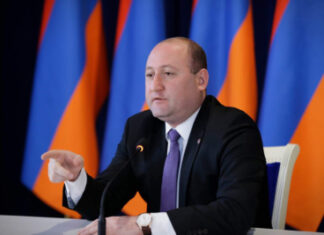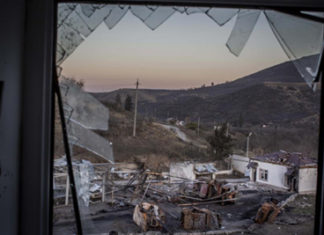One of prolific German playwright Bertolt Brecht’s most famous allegorical plays is called “The Caucasian Chalk Circle,” which takes place in Georgia. In “The Caucasian Circle,” the main characters are a peasant girl working for the governor’s wife, Grusho, and Azdak, a judge, while the other two will try to rescue them from the magical chalk circle.
In the play, the child goes to the woman who cared for the child rather than his birth mother.
The above allegory is revived by the recent trip of German Chancellor Angela Merkel to the Caucasus, where Georgia is held tight by Russia, but an overwhelming arbiter offers that country to NATO. However, the chancellor admitted that possibility is not yet on the agenda, and the Russian Prime Minister Dmitri Medvedev warned that “horrible things may happen” should Georgia join the NATO structure.
It is in this kind of political atmosphere that the German chancellor visited the three countries in the Caucasus. Before that, in mid-August, she had met Russian President Vladimir Putin in Germany and later on in Sochi. Therefore, she was very well briefed on the red lines which Russia had drawn around what is considered Moscow’s sphere of influence.
Chancellor Merkel, true to her unshakable principles, did not budge on her policies but she navigated the choppy waters skillfully. In Georgia, for example, she reiterated her criticism of Russian military presence in Abkhazia and South Ossetia but on the other hand, she cultivated her relations with Moscow on some vital issues that concern both countries. While President Ilham Aliyev of Azerbaijan was expecting her to serve as the salesperson for the Azeri-Turkmenistan gas in Europe, she sharply rebuked that country by stating that there is no alternative to Russian gas. She went further, reminding the Azeri authorities that even during the Cold War Europe depended on gas from the Soviet Union.
The other issue of mutual interest with Russia is the united stand of the two countries against President Trump’s decision to scrap the Iran nuclear deal. And finally, the two countries have a joint vested interest in the resettlement of Syrian war refugees. Russia is the guarantor of the survival of the Assad regime in Syria and the promoter of the reconstruction of that war-ravaged country.
